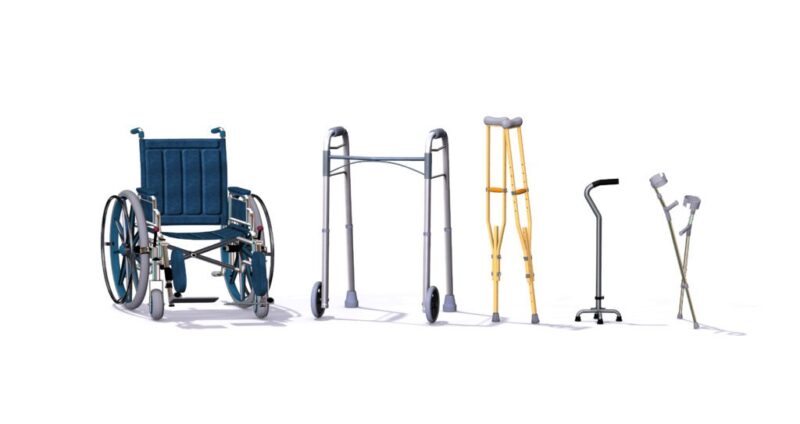Work-related health hazards extend beyond injuries sustained while performing official duties.
A more critical form of hazard, which requires long-term care, is an occupational disease.
These diseases are sometimes fatal and life-altering, as they can lead to incurable conditions. In these cases, victims often lose their ability to work due to the pain and incapacitation.
If you suffer from an occupational disease, you don’t have to bear the burden alone.
You can take legal action to seek compensation for your losses. A favorable ruling will mandate your employer, their insurer, or a trust fund to cover some of your medical expenses.
Keep reading to discover the types of medical expenses occupational disease lawsuits can help you recover.
What Are Occupational Diseases?

Occupational diseases are ailments that develop due to the nature of your job. These illnesses may be chronic or less severe with immediate or delayed symptoms.
An unsafe workplace environment often triggers occupational diseases, which, if left untreated, can worsen over time.
Several factors can lead to occupational diseases, with the most common being exposure to dangerous substances.
When inhaled or ingested, chemicals and allergens can damage body organs, causing occupational diseases like cancer, asthma, and even skin conditions.
Physical agents like noise, extreme temperature, and radiation can lead to conditions like hearing loss, arthritis, and cataracts, respectively.
The effects of occupational diseases impact various areas of a person’s life.
Depending on the nature of the victim’s condition, they may suffer immobility, lose their ability to work and earn, or even have to adjust to a reduced quality of life.
Sadly, in cases where occupational diseases manifest after a long while, victims may not realize the link between their job and ailment.
Workers need to schedule periodic health assessments, as this aids early diagnosis. This makes it possible to access treatment on time, for a better chance at recovery and survival.
In most cases, victims of occupational diseases can seek legal redress and gain settlement or compensation to aid their treatment and recovery process.
Common Medical Expenses Covered by an Occupational Disease Lawsuit
Workers suffering from occupational disease often face financial strain. From the moment of diagnosis, the bills for tests, scans, medication, hospitalization, and various forms of treatment begin to pile.
In most cases, long-term care is needed for full recovery, while some conditions are incurable, requiring constant medical attention.
Since the expenses are overwhelming, courts often award financial compensation to victims who file a lawsuit.
However, you must be able to prove the link between your illness and the work environment. Below are examples of medical costs you can gain compensation for after a successful occupational disease lawsuit.
Emergency Room and Hospitalization Costs

Most occupational diseases don’t manifest right away. They develop and worsen over time without showing noticeable symptoms.
Hence, most victims don’t get to discover their condition until it reaches a critical stage.
When the symptoms flare up or a health crisis occurs, you’ll need urgent medical attention. In these cases, you may need ambulance services, emergency treatment, and extended hospital stays. With proper legal representation, you can get a settlement that covers these costs.
Surgery and Specialist Care
If your case is severe, surgery may be necessary to save your life. You’ll have to pay for the procedure, specialist attention, and post-surgery care.
Some patients undergo multiple operations, and in cases where there are complications, the bill keeps rising. Due to this, courts often include these bills in financial payouts.
Prescription Medications
Over-the-counter medications are essential for managing both curable and incurable conditions. For example, Cannabinoids help to control pain. Other drugs minimize the effect of complications, slow down the spread of disease, and aid recovery.
Victims of occupational diseases need constant medication to manage their symptoms and optimize their health condition. Thus, lawsuits allow victims to gain compensation for their current drugs and also future prescriptions.
Medical Equipment and Assistive Devices

Occupational diseases can introduce lifelong consequences, like the inability to live and operate without medical aid.
It’s common for patients to be dependent on mobility aids, sensory aids, daily living tools, respiration, or even communication support.
Patients who experience health challenges that prevent them from living without medical support can incur huge financial debts.
To alleviate their strain, courts add the cost of assistive devices to their settlement awards.
Rehabilitation and Therapy
Recovery continues even after hospital discharge. Most people need therapy to aid recovery or adjust to living with life-threatening conditions.
For example, victims of mesothelioma may need to combine chemotherapy with radiation therapy and immunotherapy.
To seek financial support, victims file lawsuits against their employers or secure claims through asbestos trust funds.
Home Care and Nursing Services
Living with an occupational disease is challenging, especially for those with mobility issues. While some may have family members who are willing to care for them, others are left alone, requiring the services of a home care nurse.
Lawsuits often secure compensation that pays for the fees for professional caregivers and home health support.
Mental Health Support

Long-term or incurable disease often messes with the psychological state of victims. Some may even experience trauma shock and go into a social relapse.
Common effects also include depression, anxiety, irritability, and loss of self-esteem.
These conditions make it necessary for victims to undergo therapy and counseling. To facilitate their return to a good mental state, legal settlements include counseling costs as part of comprehensive care.
Travel and Accommodation for Treatment
Legal claims for occupational diseases often cover medical travel expenses.
In search of a specialist who can provide the needed treatment, patients sometimes embark on interstate trips.
In these cases, the payout is inclusive of the cost of transportation and lodging.
Endnote
Occupational diseases come with large financial burdens.
To relieve victims, courts often include the cost of hospitalization, surgery, medications, and assistive devices in the settlement amount.
In many cases, claims also cover rehabilitation, home health care, mental health support, and medical travel expenses.

